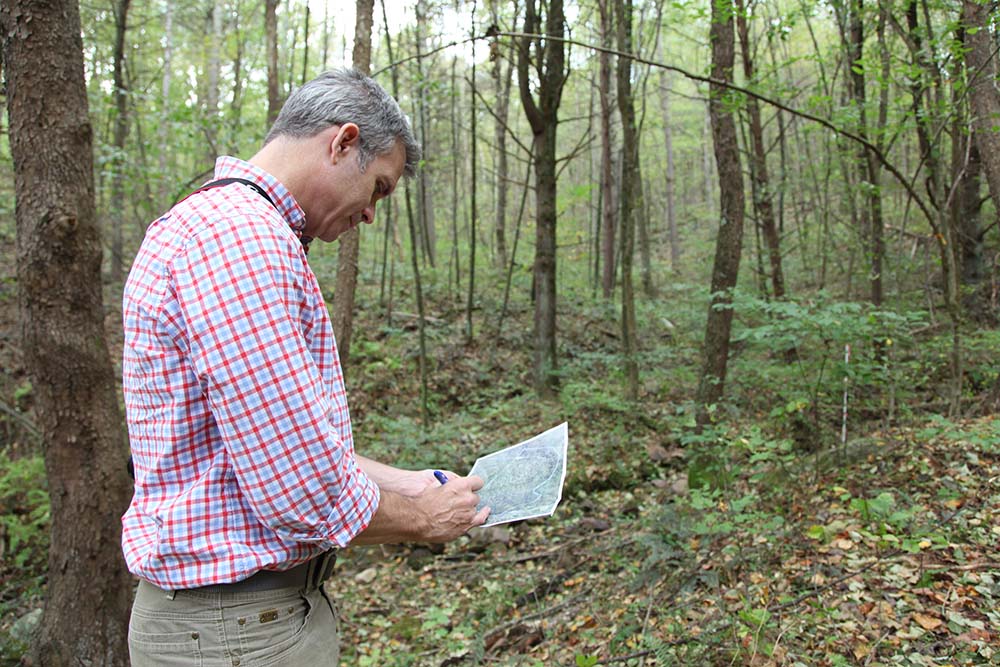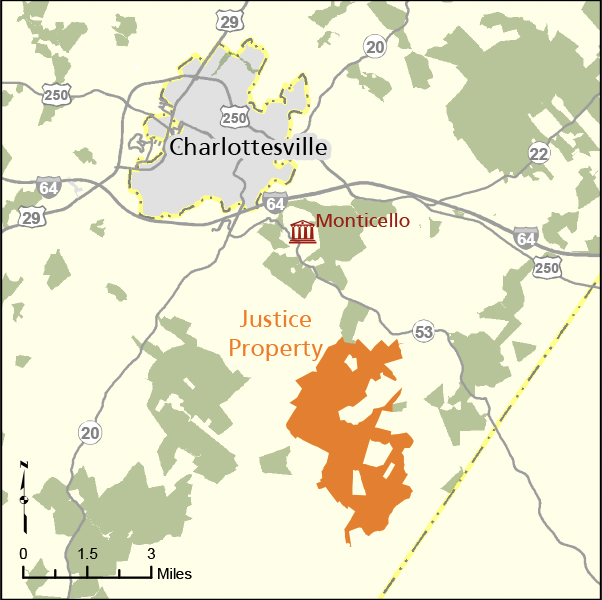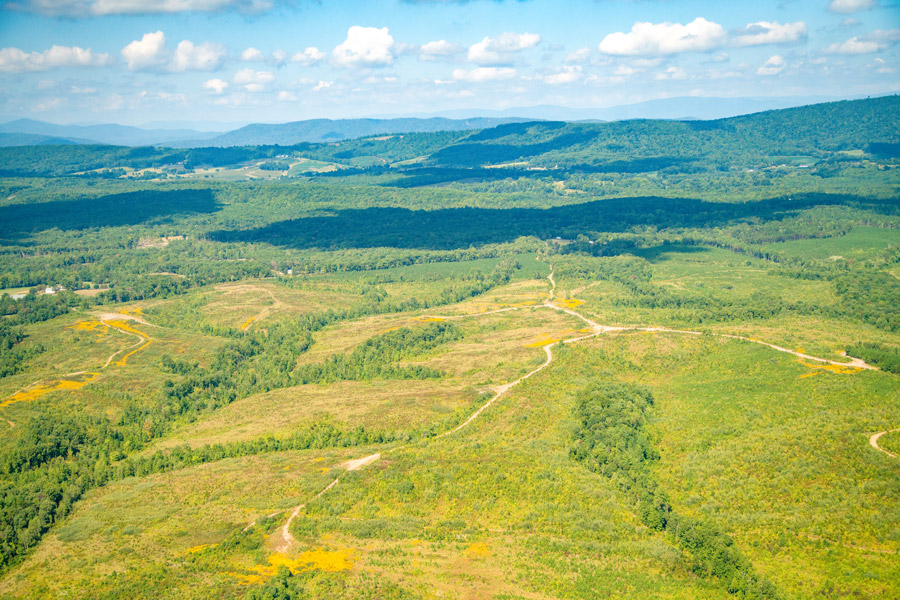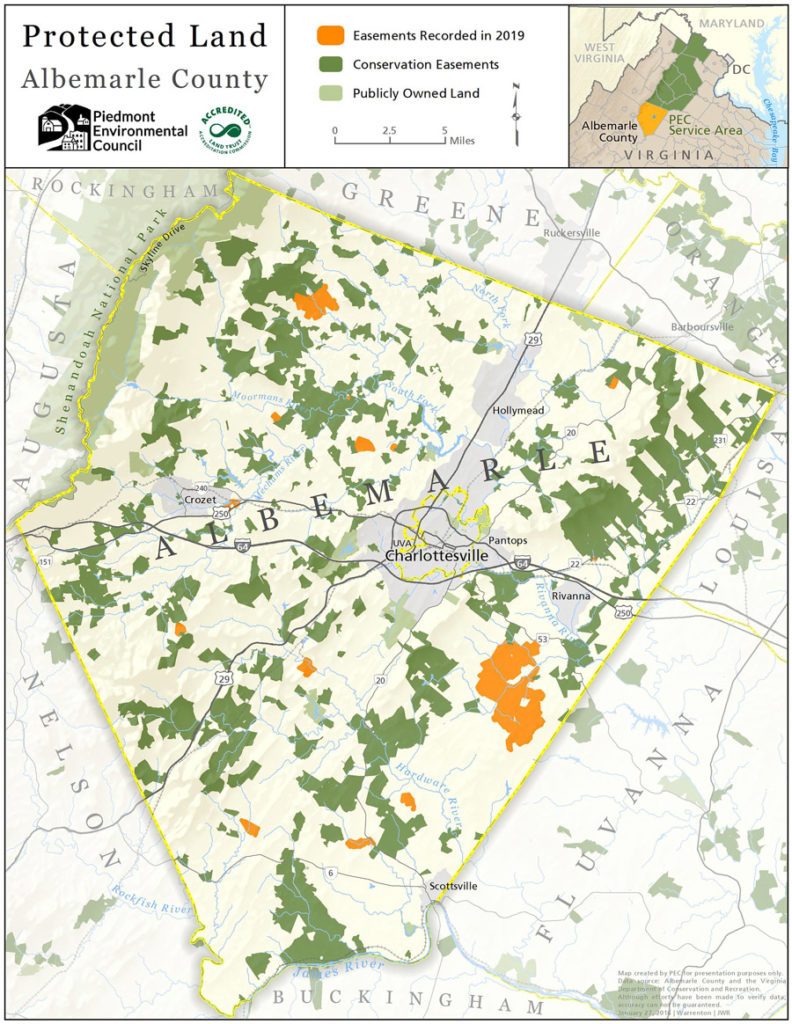
In the 16 years I’ve been working for The Piedmont Environmental Council, I have had the privilege and opportunity to help many landowners protect the wonderful natural, cultural, and scenic resources of our Piedmont region. During that time, I’ve never been accused of finding a property unworthy of protection.
As a conservation organization, we identify land ripe for conservation due to attributes such as important agricultural soils, forested area, wildlife habitat, river frontage, or scenic views, and our staff build long-term relationships with landowners. My primary job with PEC is to help landowners understand the conservation options that are available and then work with them to protect their property with a conservation easement, that is, if they decide conservation is right for them. Landowners often say “no” to conservation, or “not now,” at least initially, and in this line of work, we develop a thick skin, grow accustomed to rejection, and learn the value of persistence.

From the beginning, I’ve had on my radar a large 4,500-acre piece of land within the eastern viewshed of Monticello. It is one of the largest contiguous blocks of land in Albemarle County, and its location just 15 minutes from downtown Charlottesville puts it at great risk for development. When I started with PEC, the land was owned by the timber company, MeadWestvaco. For a few years, I brainstormed with colleagues at The Nature Conservancy on strategies to protect the property, but nothing panned out. Eventually, MeadWestvaco put it on the market and sold it to the James C. Justice Companies in 2010.
Shortly after the property changed hands, I reached out to a local representative for the Justice family and began exploring conservation options for the property. Over the years, I felt like I tried everything. Maybe the Commonwealth would purchase it as a state forest? Perhaps the owner could establish a carbon mitigation bank and sell carbon credits? How about a limited development scenario that preserved the most important parts of the property? For a host of reasons, nothing worked. But I stayed after it and touched base every six months or so.
Persistence eventually paid off, and in early 2019, the landowner wanted to protect the land by donating a conservation easement. We connected the owner with the Albemarle Conservation Easement Authority, which actually holds the easement, and by July 2019, this important property was permanently protected. It is now one of the largest conserved properties in the region.

Ultimately, every landowner who donates a conservation easement deserves 100 percent of the credit for their decision. That said, I truly believe that if The Piedmont Environmental Council had not allowed me to invest years of effort into patiently cultivating a relationship and staying at the table to find a conservation solution, the landowners of this remarkable property would not have been in the position to make the decision they did.
Having local staff on the ground who build relationships with individual landowners is one of the key reasons that the northern Virginia Piedmont is one of the most highly protected regions in America.
This same type of scenario has played itself out time and time again over the past 50 years in the nine counties served by PEC. Having local staff on the ground who build relationships with individual landowners is one of the key reasons that the northern Virginia Piedmont is one of the most highly protected regions in America.

If you know of a conservation opportunity in your neck of the woods, please reach out to us! You can call our main line at 540-347-2334 or shoot us an email at conservation@pecva.org.
This article was featured in our Spring 2020 member newsletter, The Piedmont View.
